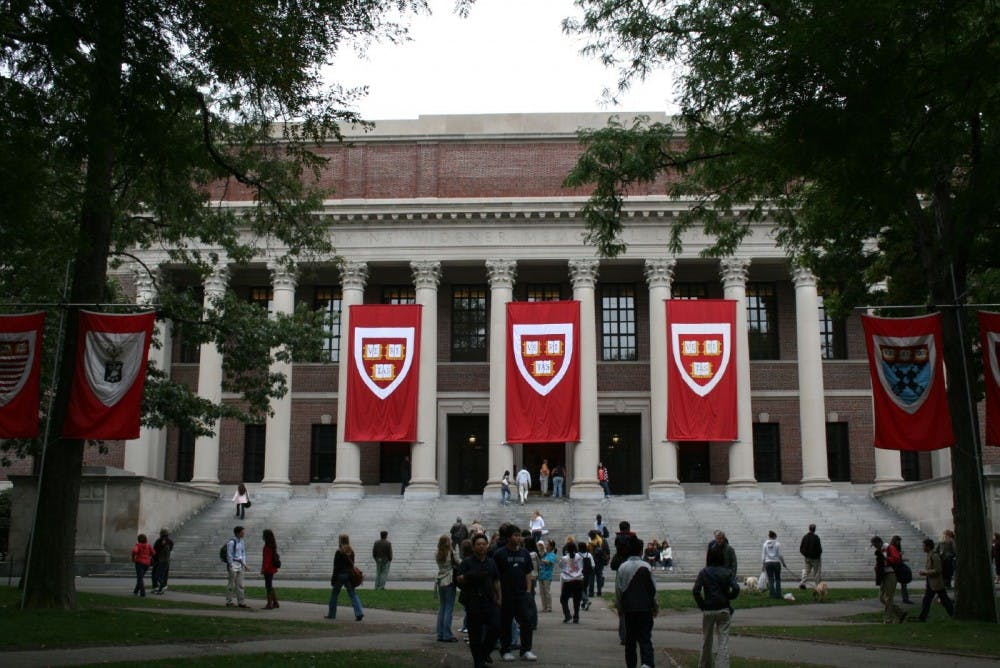Having been one of the last Ivy League universities to announce its fall semester plans, Princeton now awaits a spring semester decision set to be announced in early December, becoming one of the last Ivies to reveal concrete plans for the spring.
The fall looked very different at each of the eight Ivy League campuses this year. Cornell University invited back members of every class year, while Harvard only brought back first-years. Brown, Dartmouth, and Yale only invited certain class years to return. Princeton, Columbia, and The University of Pennsylvania (UPenn) only welcomed a select number of students to their campuses.
At the time of publication, Cornell is planning for a fully residential spring semester, but warns that pandemic conditions could force the school to revise. In light of Cornell’s fall semester success with bringing students back and controlling COVID-19 cases, it appears the Big Red may be safe to begin in-person instruction again in the spring. In its worst week so far, Cornell reported a 0.11 percent positivity rate.
Though Cornell is currently under a “Yellow” alert level — signifying a low to moderate risk — Cornell has said the designation is a precaution designed to prevent further COVID-19 spread. The school’s fall safety procedures included an online Daily Check, in which students and faculty reported if they have left the state and if they were experiencing any symptoms.
One Cornell student told The Daily Princetonian they are comfortable and satisfied with their university’s handling of the pandemic.
“Cornell’s attempt at minimizing the spread of COVID has been successful because of the strict policies in place and active reinforcement,” first-year Aidan Tauber said.
These policies also included testing twice a week for all undergraduate students. Classes operated in hybrid format with social distancing in classrooms, which is expected to continue into the spring.
This fall, only students in need of emergency housing returned to UPenn’s campus. Despite low numbers of students on campus, UPenn’s positive testing rate has been comparatively higher, with a 1.34 percent positivity rate since Sept. 20.

UPenn plans to bring students from every class year, with priority given to first-, second-, and fourth-year undergraduates, back for the spring semester, though not as many as they would have “pre-COVID.” Most classes will be online, but UPenn will deliver some in-person classes with “clinical experiences and in-person research required for graduation.”
UPenn will require testing twice a week through a “saliva-based testing system.” The school is also mandating that all returning students receive a flu shot.
Kelly Guiltinan, a sophomore at UPenn, said she hopes to return to campus in the spring.
“I’m hoping that they follow through with these spring plans because I think if everyone is getting tested they will be able to contain the virus well,” she wrote in an email to the ‘Prince.’

Columbia also did not welcome back many students in the fall, only inviting students in need of emergency housing. The low number of students on campus resulted in a low number of cases, with a cumulative 0.12 percent positivity rate for the semester so far.
Columbia announced its spring plans on Monday. Administrators expressed confidence in their ability to bring back seniors for the spring semester and raised the possibility of bringing back part of the junior class. Columbia’s classes will all be conducted online or in a hybrid format.
A Columbia sophomore living on campus in emergency housing said she was recently informed that her dorm building had high levels of COVID-19 in its sewage, prompting additional testing for all students living there. The student was granted anonymity out of fear of repercussions.
She expressed surprise at the decision to bring back more students, given the uptick in cases and limited spaces currently available to students.
“I wish that they would prioritize increasing quality of life for students on campus who have to be here in an emergency context before they consider bringing more back,” she said.
“I do hope that they make clear to those students who they are inviting back what it is like to live on campus because I think there’s a lot of romanticization that comes with living on campus, with students not understanding that facilities access is limited, quality of life can be pretty poor, and mental health can be pretty poor as well.”
Harvard invited first-years back to campus for the fall semester with remote classes and conducted testing three times a week. The Cambridge campus has seen 190 positive COVID-19 cases since June 1, out of nearly 200,000 tests administered.
“I think Harvard did a good job about being COVID safe and implementing guidelines,” Harvard first-year Amy Huang wrote in an email to the ‘Prince.’ “I think they could have put in more opportunities and events for us to interact and meet each other, but other than that we were provided with a very safe environment.”
As of publishing, Harvard plans to bring only seniors back for the spring, with a maximum of 40 percent density on campus.
Dartmouth College has housed first-years and juniors on campus this fall and will house first-years and seniors in the spring. Most classes have been online with a few hybrid options.
Throughout the fall, Dartmouth has employed weekly testing. The school also implemented daily temperature checks and self-assessments to report any symptoms. Dartmouth has only reported 33 positive cases on campus since July 1, with only 23 of them being students.
“Half of my time at college has been virtual so far, so I’m definitely looking forward to being on campus in the winter. I think it’s a good plan to be testing twice a week in the winter, since we won’t be spending as much time outside and risk of transmission might be higher,” sophomore Emily Lu wrote to the ‘Prince.’
Yale University took a similar approach to Dartmouth and brought back only certain class years. For the fall, Yale welcomed first-years, juniors, and seniors, with predominantly remote courses. The New Haven campus too has implemented a daily self-assessment, and testing occurs twice a week.
Since Aug. 1, Yale has reported 223 positive cases and is currently at an “Orange” alert level, which indicates moderate risk. Still, the school is planning to bring back sophomores, juniors, and seniors for the spring semester, with a mix of online and hybrid classes.
Like many colleges, Yale plans to begin the spring semester later than usual and eliminate its spring break.
“We are starting two weeks later than normal in lieu of a normal two-week spring break, which is going to increase the workload and strain on students mid-semester in the spring, but I also understand the risk of letting students leave campus for spring break and come back spreading COVID,” Yale senior Greta Browne wrote to the ‘Prince.’
Brown University has adopted a three-phase plan to welcome students back to campus. For the fall semester, the school welcomed approved sophomores, juniors, and seniors back to campus. For the spring, Brown plans on having first-years, juniors, seniors, and some sophomores. First-years and sophomores will be allowed to remain on campus for the summer.
Students at Brown are tested once or twice a week, and Brown has seen a 1.4 percent positivity rate since Aug. 24, with 106 total cases on campus. They implemented online and hybrid classes to allow for some in-person activity.
One Brown senior, Richie Huisa, said he was pleased with how Brown has handled the pandemic.
“When I’m on campus, being tested 2-3 times a week, COVID almost becomes like a back-burner worry for me besides when I have to run to a grocery store. We’re currently moving forward with a hybrid-curriculum approach again, which I feel pretty good about given how well it’s worked this semester,” he wrote.
At the time of publication, the seven other Ivy League schools are planning to bring at least one class year back to campus in the spring. Even with a recent change in emergency housing criteria, Princeton has released no further updates since October, when President Christopher L. Eisgruber ’83 announced that spring plans would be unveiled “in the first week of December.”








